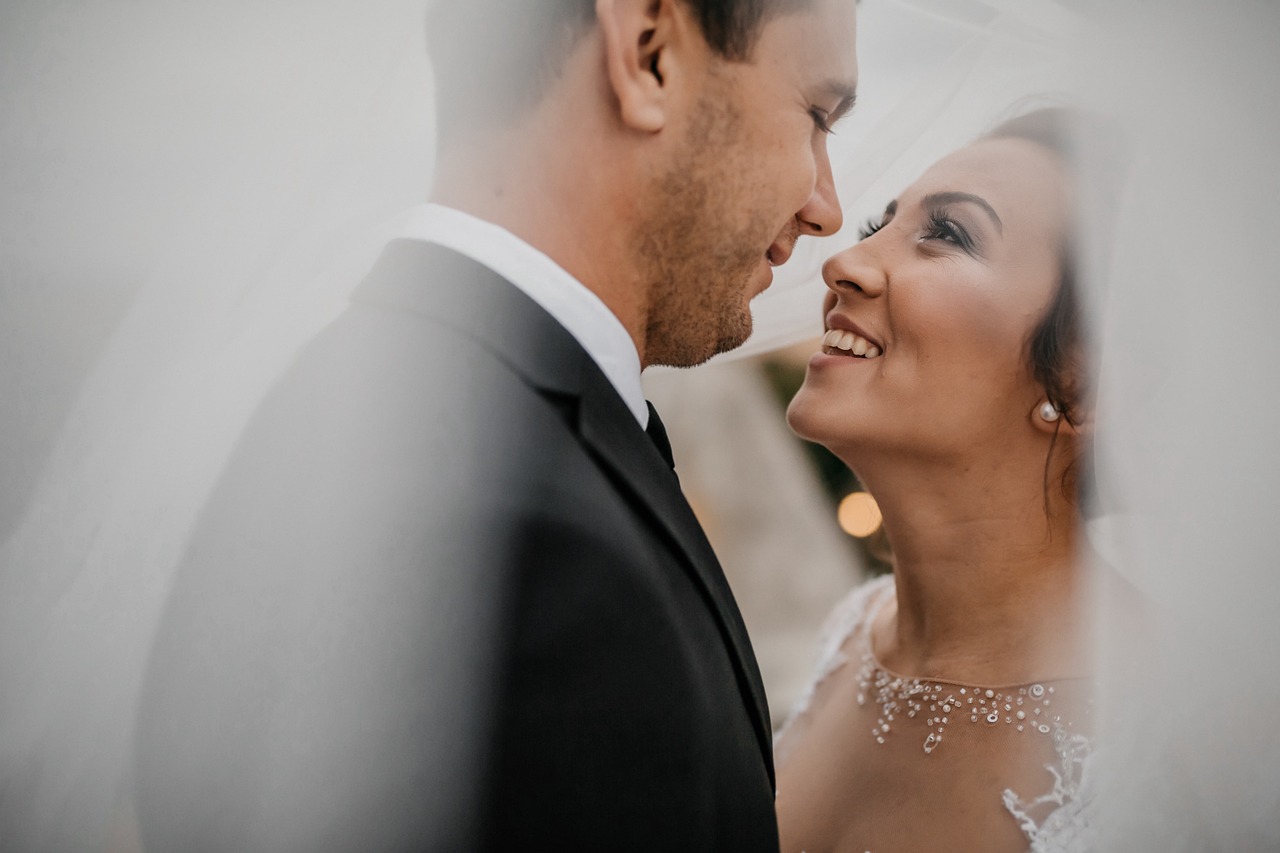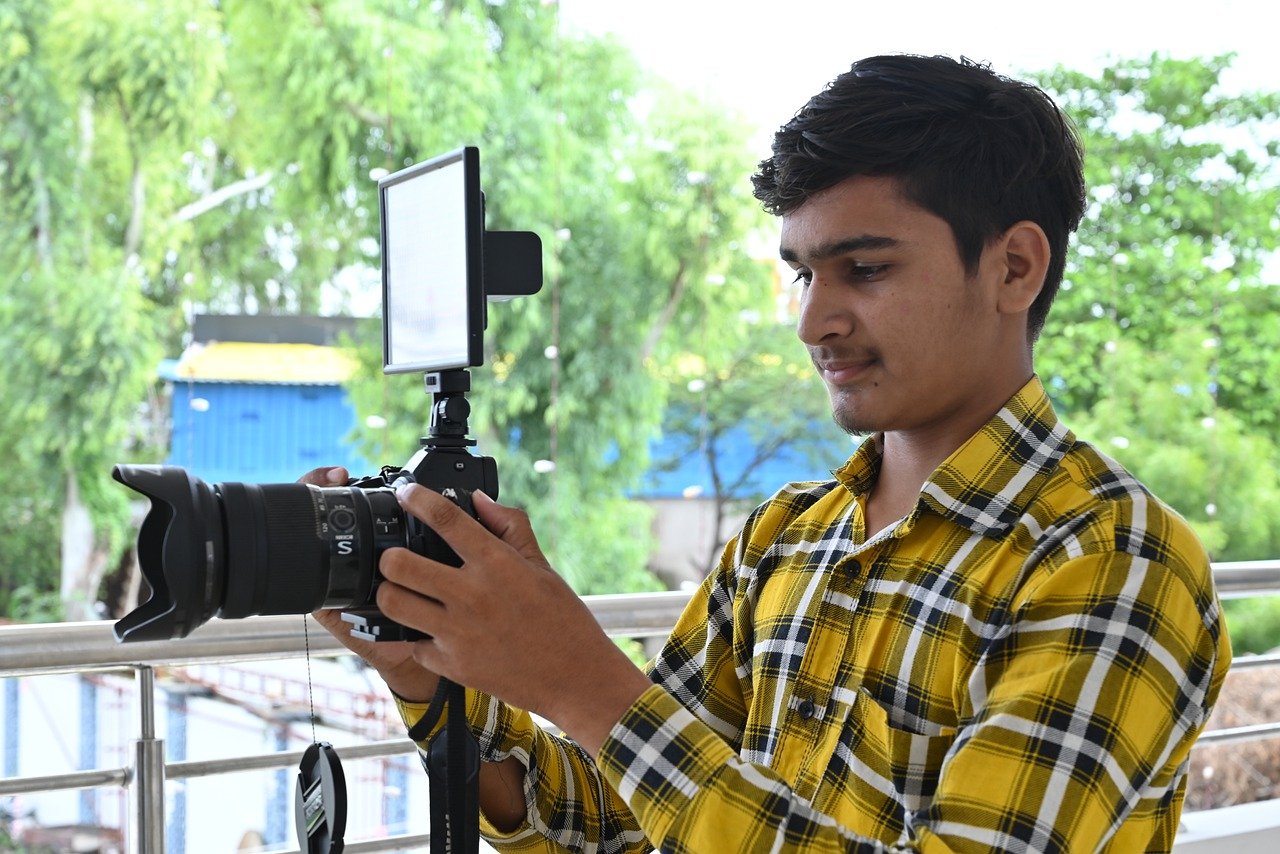Becoming a wedding officiant is a rewarding journey that allows you to play a significant role in one of the most important days of a couple’s life. This guide provides a comprehensive overview of the essential steps involved in this process, ensuring that aspiring officiants have the information they need to succeed.
To become a successful wedding officiant, it’s vital to understand the qualifications required. While formal education is not always necessary, having strong communication skills, a sense of empathy, and an understanding of the wedding process are crucial. Additionally, some states may have specific legal requirements, such as being of a certain age or having a valid identification.
Getting ordained is a fundamental step in your journey as an officiant. There are various organizations that offer ordination, both online and through traditional methods. Here’s a closer look:
Many officiants opt for online ordination services due to their convenience. Platforms such as Universal Life Church and American Marriage Ministries provide straightforward processes for obtaining ordination. When selecting a service, consider factors like cost, ease of application, and any additional resources they offer.
The financial aspect is an important consideration. Most online ordination services charge minimal fees, typically ranging from $0 to $50. Be aware of any hidden costs, such as fees for official documentation or additional certifications.
It’s essential to note that not all states recognize online ordination. Research your state’s laws to ensure your credentials will be accepted. Some states may require additional registration or documentation.
For those who prefer a more traditional route, getting ordained through a religious institution or local government can be an option. This process might involve attending classes or completing specific requirements set by the organization.
Understanding the legal landscape is crucial for officiants. Each state has its own marriage laws, so familiarize yourself with the necessary documentation and licenses required to officiate weddings in your area.
A marriage license is a critical document for any wedding. Officiants play a key role in ensuring that the couple obtains this license and understands the process involved. Typically, couples must apply for a license before the ceremony and return it signed after.
Each state has unique regulations for officiants. Researching your state’s specific laws will help you comply with any requirements, ensuring that you can legally officiate weddings without complications.
Preparation is key to a successful ceremony. Start by meeting with the couple to discuss their vision and preferences for the ceremony. This initial meeting is vital for understanding their desires and tailoring the ceremony to reflect their unique relationship.
A well-structured ceremony script is essential for a smooth flow. When writing the script, consider incorporating personal anecdotes or elements that resonate with the couple’s story, making the ceremony more meaningful.
Conducting a wedding ceremony requires skill, poise, and the ability to engage the audience. Here are some best practices:
Captivating the audience is crucial for a memorable ceremony. Use eye contact, varying your tone, and including interactive elements to keep guests engaged.
Unexpected issues may arise during a ceremony. Stay calm and composed, and have contingency plans in place for common problems, such as weather changes or technical difficulties.
Effective marketing is essential for attracting couples. Building a strong online presence through a professional website and social media can showcase your services and reach potential clients.
Building relationships with other wedding professionals, such as photographers and planners, can enhance your visibility. Attend local bridal shows and networking events to connect with others in the industry.
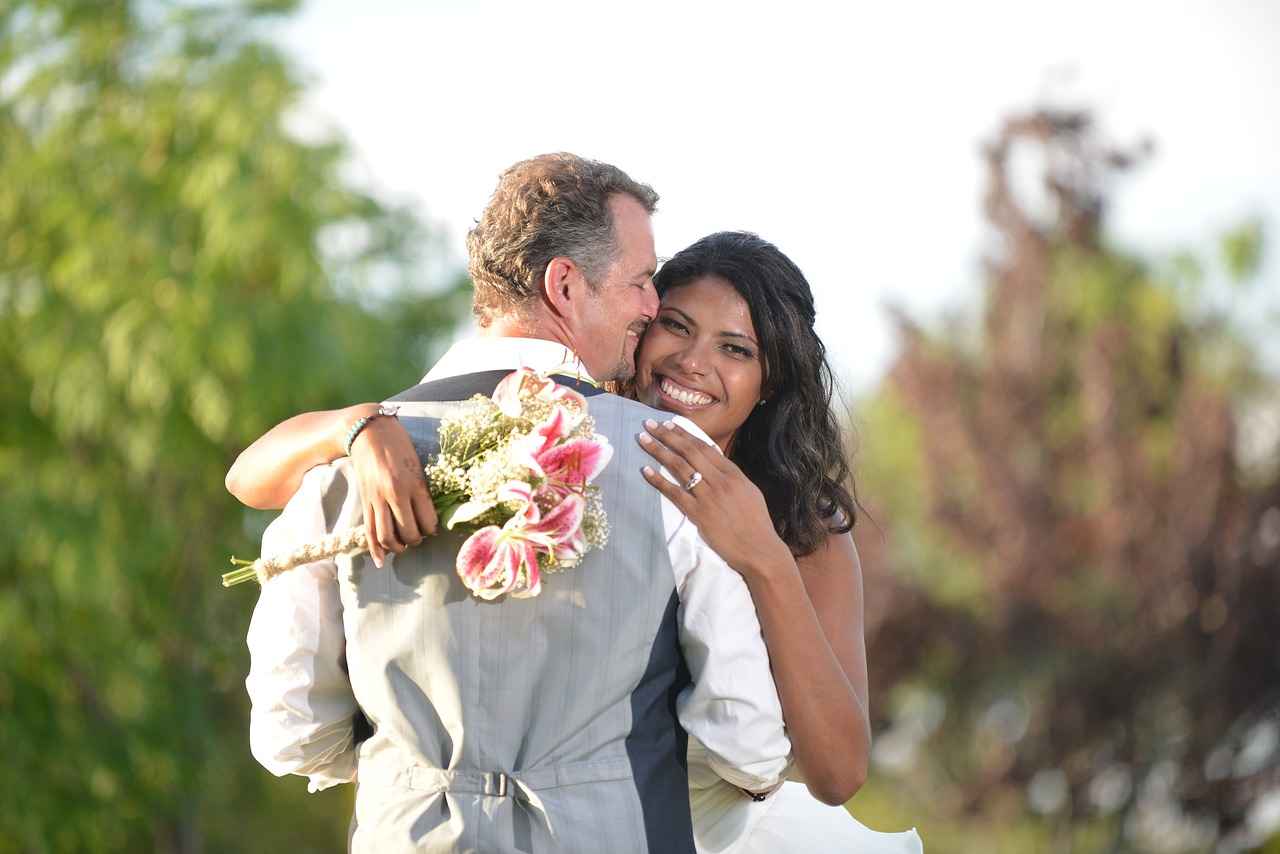
What Qualifications Do You Need to Become a Wedding Officiant?
Becoming a wedding officiant is a rewarding journey that allows you to play a significant role in one of the most important days of a couple’s life. However, before stepping into this role, it is essential to understand the necessary qualifications that will enable you to perform your duties effectively. This section delves into the educational requirements, legal stipulations, and personal attributes that contribute to being an effective officiant.
Educational Requirements: While there is no formal education required to become a wedding officiant, having a background in communication, public speaking, or even theology can be beneficial. Many officiants choose to take courses or workshops that focus on marriage laws, ceremony planning, and public speaking to enhance their skills.
Legal Stipulations: Understanding the legal requirements in your state is crucial. Each state has its own regulations regarding who can officiate weddings. Generally, officiants must be ordained or hold a specific license to perform marriages legally. It is important to check your state’s marriage laws to ensure compliance. For example, some states allow online ordination, while others may require officiants to be affiliated with a religious organization.
| State | Ordination Requirement |
|---|---|
| California | Online ordination accepted |
| New York | Must be ordained or appointed |
| Texas | Online ordination accepted |
Personal Attributes: Beyond legal qualifications, certain personal attributes can enhance your effectiveness as an officiant. Key traits include:
- Empathy: Understanding the emotions of the couple and their families can help create a more meaningful ceremony.
- Communication Skills: The ability to speak clearly and confidently in front of an audience is essential.
- Flexibility: Being adaptable to changing circumstances during the ceremony can help manage unexpected situations gracefully.
- Creativity: Crafting a unique ceremony that reflects the couple’s personality and story is crucial for a memorable experience.
In addition to these attributes, having a genuine passion for love and marriage can inspire you to create a heartfelt ceremony. As an officiant, you are not just a legal representative; you are a storyteller who helps couples express their love in front of family and friends.
Ultimately, the qualifications to become a wedding officiant are a blend of legal understanding, educational background, and personal qualities. By equipping yourself with the right knowledge and skills, you can ensure that you are prepared to guide couples through their special day with confidence and grace.

How Do You Get Ordained to Officiate Weddings?
Getting ordained is a significant step for anyone looking to officiate weddings. This process not only grants you the necessary credentials but also allows you to play a pivotal role in one of the most important days in a couple’s life. In this section, we will explore various organizations that offer ordination, the steps involved in obtaining your credentials, and important considerations to keep in mind.
There are numerous organizations that provide ordination services, each catering to different beliefs and preferences. Here are a few popular options:
- Universal Life Church (ULC): One of the most recognized online ordination services, ULC offers free ordination and is widely accepted across the United States.
- American Marriage Ministries (AMM): AMM provides free ordination and emphasizes the importance of personalizing the wedding ceremony.
- Church of Spiritual Humanism: This organization offers ordination for those who align with humanist values, focusing on inclusivity and personal beliefs.
Obtaining ordination can be a straightforward process, typically involving the following steps:
- Choose Your Organization: Research and select an organization that aligns with your values and the type of ceremonies you wish to officiate.
- Complete the Application: Most organizations require you to fill out an online application form. This process is usually quick and can be done from the comfort of your home.
- Receive Your Credentials: After your application is processed, you will receive your ordination credentials, often via email or postal mail.
- Familiarize Yourself with State Laws: Ensure that you understand the legal requirements for officiating weddings in your state, as these can vary significantly.
Before you proceed with ordination, there are several important factors to consider:
- Legal Recognition: Not all states recognize online ordination. Research your state’s laws to ensure your credentials will be accepted.
- Personal Beliefs: Choose an organization that resonates with your values and beliefs, as this will enhance your connection with the couples you officiate.
- Cost Considerations: While many organizations offer free ordination, some may charge fees for additional services or materials. Be sure to review these costs before making a decision.
While online ordination is popular, some individuals may prefer traditional routes. Many religious institutions and local governments offer ordination services. This process can vary widely depending on the organization, but generally includes:
- Meeting with a religious leader or official.
- Participating in a ceremony or training program.
- Receiving a certificate or license upon completion.
In conclusion, getting ordained is a vital step for anyone aspiring to officiate weddings. By understanding the various organizations available, the steps to obtain your credentials, and the legal considerations involved, you can confidently embark on this rewarding journey. Whether you choose online ordination or a traditional route, your role as an officiant will allow you to create memorable moments for couples on their special day.
Online Ordination Services
In the evolving landscape of wedding officiation, many aspiring officiants are turning to for their simplicity and accessibility. These platforms offer a streamlined process that allows individuals to become ordained quickly, often without the need for extensive paperwork or lengthy procedures.
There are several well-known online ordination services that cater to different needs and preferences. Some of the most popular include:
- Universal Life Church (ULC) – One of the oldest and most recognized online ordination services, ULC offers free ordination and has a wide acceptance across the United States.
- American Marriage Ministries (AMM) – This organization provides free ordination and focuses on helping officiants with resources and guidance throughout the officiation process.
- Open Ministry – Known for its straightforward application process, Open Ministry also offers various resources for officiants, including ceremony scripts and training materials.
The process of getting ordained online is typically straightforward:
- Choose a Service: Select a platform that aligns with your values and needs.
- Fill Out the Application: Complete a simple online application form that usually requires basic personal information.
- Receive Your Credentials: Once approved, you will receive your ordination credentials via email or postal mail.
- Review Legal Requirements: Familiarize yourself with the legal requirements in your state to ensure your ordination is recognized.
While online ordination is convenient, it’s essential to consider several factors before selecting a service:
- Legal Recognition: Check whether the service is recognized in your state. Some states have specific requirements for officiants.
- Cost: While many services offer free ordination, there may be fees for additional resources or materials, such as ceremony scripts or officiant training.
- Resources Provided: Consider what additional resources the platform offers, such as support documents, ceremony scripts, or community forums.
- Customer Reviews: Research customer feedback to gauge the reliability and quality of the service.
While online ordination services provide many benefits, there are also some potential downsides to consider:
- State-Specific Limitations: Not all states recognize online ordination, which can limit your ability to officiate legally.
- Lack of Personal Connection: Some individuals may find that online ordination lacks the personal touch and mentorship offered by traditional ordination methods.
- Variable Acceptance: Different venues and couples may have varying levels of acceptance regarding online ordination, which can affect your client base.
In summary, online ordination services have become a popular choice for aspiring wedding officiants due to their convenience and accessibility. By carefully considering the factors outlined above, you can make an informed decision about which service best meets your needs and aligns with your vision as an officiant.
Cost of Online Ordination
Becoming a wedding officiant can be a fulfilling journey, but understanding the financial aspects involved is crucial. This section will provide a detailed breakdown of the typical costs associated with online ordination, as well as any additional fees that may arise during the process.
Online ordination services offer a convenient way to become a wedding officiant, often at a fraction of the cost of traditional ordination methods. The typical costs can vary significantly depending on the organization you choose. Most online ordination services charge between $30 to $100 for their packages. These packages usually include:
- Ordination Certificate: A formal document confirming your status as an officiant.
- Guidebooks: Resources that help you understand the officiating process and legal requirements.
- Customer Support: Assistance for any questions or issues that may arise.
While the initial cost of ordination is relatively low, there are other potential fees that aspiring officiants should be aware of:
- State Registration Fees: Some states require officiants to register before performing weddings, which can range from $10 to $50.
- Travel Expenses: If you are officiating a wedding at a location that requires travel, you may need to consider transportation and accommodation costs.
- Insurance: Depending on your location and the venues you work with, liability insurance may be necessary, often costing around $100 to $300 annually.
Several factors can impact the overall cost of online ordination:
- Type of Package: Some organizations offer premium packages that include additional features, such as personalized ceremonies or advanced support.
- State Requirements: Different states have varying legal requirements, which can affect your total expenses.
- Experience Level: Newer officiants may incur additional costs for training or resources to build their skills.
For many aspiring officiants, the investment in online ordination is worthwhile. The convenience and accessibility of online services make it an attractive option. Additionally, the ability to perform weddings legally can open up new opportunities for personal fulfillment and income generation. However, it is essential to weigh these benefits against the potential costs and ensure that you are compliant with your state’s regulations.
In conclusion, understanding the costs associated with online ordination is vital for anyone considering this path. By carefully evaluating the various fees and factors involved, you can make an informed decision that aligns with your goals as a wedding officiant.
Legal Recognition of Online Ordination
When considering becoming a wedding officiant, one crucial aspect to understand is the . Not all states in the U.S. accept credentials obtained through online ordination services. This variance can significantly impact your ability to officiate weddings legally, so it’s essential to be informed about the specific laws in your state.
The legality of online ordination varies widely across the country. Some states, such as California, New York, and Florida, readily accept online ordination, allowing individuals to perform weddings without additional requirements. In contrast, other states, like Virginia and Texas, have stricter regulations that may require officiants to be affiliated with a recognized religious organization or to meet specific legal criteria.
To navigate these complexities, it is advisable to research your state’s laws regarding online ordination. Many states provide resources on their official government websites that outline the requirements for officiants. Additionally, consulting with local county clerks can provide clarity on the necessary documentation needed to perform ceremonies legally.
In some instances, even if a state does recognize online ordination, there may be additional steps required. For example, some states may require officiants to register with the county or obtain a specific license before officiating weddings. Understanding these nuances is vital to ensure that you are compliant with local laws and regulations.
Moreover, it’s important to note that the acceptance of online ordination can also change. Laws are subject to amendments, and what is true today may not hold in the future. Therefore, staying updated on any legislative changes in your state is crucial. Joining officiant associations or forums can be a valuable way to stay informed about the latest developments and share experiences with other officiants.
For those considering online ordination, it is also wise to evaluate the credibility of the organization from which you seek ordination. Look for organizations that have been around for a while and have positive reviews from other officiants. This can help ensure that your credentials will be respected by the jurisdictions where you intend to officiate.
In summary, while online ordination offers a convenient path to becoming a wedding officiant, it is essential to be aware of the legal recognition of these credentials in your state. By conducting thorough research and understanding the requirements, you can confidently navigate the process and fulfill your role as a wedding officiant.
Traditional Ordination Methods
When considering the path to becoming a wedding officiant, many individuals may find themselves drawn to . This approach often involves more established religious institutions or local governments, offering a sense of legitimacy and community support that can be appealing. Understanding the steps involved in this process is essential for those who wish to embark on this fulfilling journey.
Getting ordained through traditional means typically requires a few essential steps:
- Research Religious Institutions: Begin by identifying a religious organization that aligns with your beliefs and values. Many churches, synagogues, and other religious bodies offer ordination.
- Meet Educational Requirements: Some institutions may require specific educational qualifications or training. This can include attending classes or completing a theological degree.
- Complete Application Process: Submit an application to the chosen institution. This often includes personal information, references, and sometimes an interview.
- Receive Ordination: Once approved, you will receive your ordination credentials, which may come in the form of a certificate or official letter.
In addition to religious institutions, local governments can also play a crucial role in the ordination process. Here’s how:
- Understand Local Laws: Different states and municipalities have varying laws regarding who can officiate weddings. Research your local regulations to ensure compliance.
- Obtain Necessary Licenses: Some regions may require officiants to apply for a specific license or permit to conduct marriages legally.
- Register with Local Authorities: In some cases, you may need to register your ordination with local government offices. This is often a straightforward process but is essential for legal recognition.
Choosing traditional ordination methods can offer several benefits:
- Community Support: Being part of a religious community can provide support and resources as you begin your officiating journey.
- Credibility: Traditional ordination is often viewed as more credible by couples seeking an officiant, which can enhance your reputation.
- Networking Opportunities: Connecting with other officiants and clergy can lead to valuable networking opportunities, referrals, and collaborations.
While there are many advantages, it’s important to consider potential drawbacks:
- Time-Consuming: The process of obtaining traditional ordination can be lengthy, requiring significant time and effort.
- Restrictions on Ceremonies: Some religious institutions may have restrictions on the types of ceremonies you can perform, which might not align with every couple’s vision.
- Cost Factors: There may be fees associated with training, application, and certification that could add up.
In conclusion, opting for traditional ordination methods can be a rewarding path for those looking to become wedding officiants. By understanding the steps involved and weighing the benefits against the drawbacks, you can make an informed decision that aligns with your personal and professional goals.
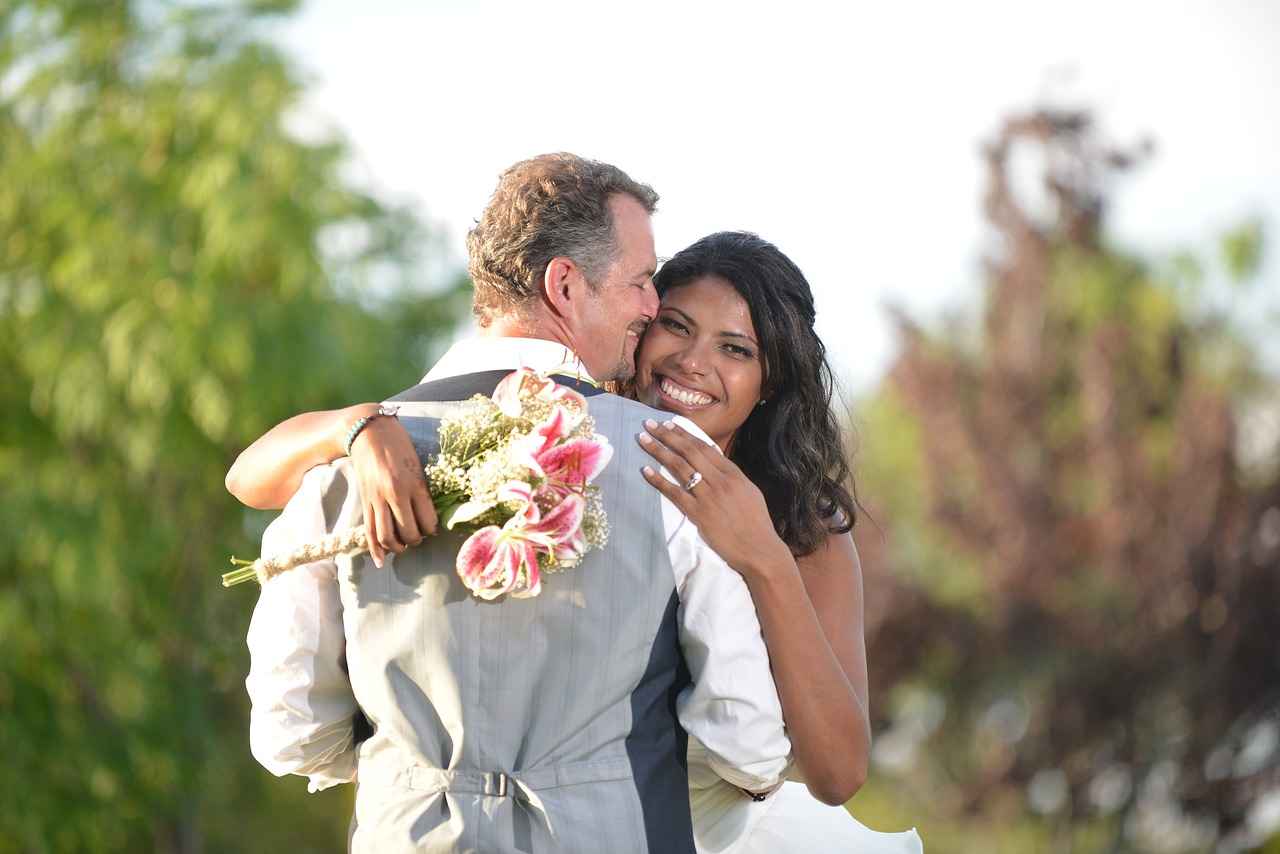
What Legalities Should You Be Aware Of as an Officiant?
When considering the role of a wedding officiant, it is imperative to understand the legal landscape that governs marriage ceremonies. Navigating legal requirements is essential for officiants, as it ensures that the ceremonies they conduct are valid and recognized by law. This section delves into the various marriage laws, necessary documentation, and any licenses required to officiate weddings.
Marriage laws can vary significantly from one jurisdiction to another. In most places, couples must obtain a marriage license before their wedding day. This license serves as official permission from the state to marry. Officiants should familiarize themselves with the specific laws in their state or region, including:
- Waiting Periods: Some states impose a waiting period between applying for a marriage license and the actual wedding ceremony.
- Expiration Dates: Licenses typically have a validity period, after which they expire if not used.
- Residency Requirements: Certain states may require at least one partner to be a resident.
To officiate a wedding legally, officiants must ensure they possess the necessary documentation. This may include:
- Ordination Certificate: Proof of ordination is often required, especially if the officiant is affiliated with a religious organization.
- Identification: A valid form of identification, such as a driver’s license or passport, may be needed for verification.
- Marriage License: Officiants must collect the marriage license from the couple and ensure it is properly signed and returned to the appropriate government office.
While some states allow individuals to officiate weddings without a formal license, others have specific requirements. It is crucial for officiants to check:
- State Licenses: Some states require officiants to register or obtain a license to legally perform weddings.
- Local Regulations: In addition to state laws, local jurisdictions might have their own regulations regarding officiants.
Each state has unique regulations that govern who can officiate weddings. For instance, in some states, only ordained ministers, judges, or certain public officials can perform marriages. In contrast, others may allow any individual who meets specific criteria to officiate. Officiants should:
- Research Local Laws: Thoroughly investigate the laws in your state to ensure compliance.
- Consult Official Resources: Use government websites or legal databases to find accurate and up-to-date information.
There are several misconceptions surrounding the role of officiants. One common myth is that any person can officiate a wedding without any formalities. While this may be true in some areas, many states have specific requirements that must be met. Understanding these nuances is vital for ensuring that the ceremony is legally binding.
In conclusion, being aware of the legalities involved in officiating weddings is crucial for any aspiring officiant. From understanding marriage laws to ensuring proper documentation, each step is essential in conducting a successful and legal ceremony. By staying informed and compliant with state regulations, officiants can provide couples with the peace of mind that their marriage is recognized and valid.
Understanding Marriage Licenses
A marriage license is a fundamental requirement for couples wishing to formalize their commitment through a legal marriage. This document not only signifies that the couple has met the necessary legal criteria to marry but also serves as a protective measure for both parties under the law. Understanding the process of obtaining a marriage license and the officiant’s role in this process is crucial for a seamless wedding experience.
The journey to obtaining a marriage license typically begins with the couple visiting their local government office, often the county clerk or registrar. Here are the essential steps involved:
- Research Requirements: Each state has its own set of requirements, including identification, residency, and age. Couples should check their state’s specific regulations.
- Gather Necessary Documents: Common documents needed include government-issued IDs, birth certificates, and sometimes proof of residency.
- Complete the Application: Couples must fill out a marriage license application form, which can usually be found online or at the office.
- Pay the Fee: There is typically a fee associated with obtaining a marriage license, which varies by location.
- Receive the License: Once the application is processed, the couple will receive their marriage license, which is valid for a specified period.
The officiant is a vital part of the marriage process. Their responsibilities include:
- Ensuring Legal Compliance: The officiant must ensure that the marriage license is valid and properly signed after the ceremony.
- Conducting the Ceremony: They lead the wedding ceremony, guiding the couple through their vows and any rituals they wish to include.
- Filing the License: After the ceremony, the officiant is responsible for returning the signed marriage license to the appropriate government office, completing the legal process.
A marriage license is not just a formality; it has significant implications:
- Legal Recognition: It provides legal recognition of the marriage, which is essential for various rights and responsibilities, such as tax benefits and inheritance.
- Protection of Rights: It ensures that both parties have legal protections in the event of a divorce or separation.
- Social Acknowledgment: A marriage license signifies a commitment recognized by society, adding a layer of legitimacy to the union.
Marriage license laws can vary widely by state, making it essential for couples to understand the rules in their jurisdiction. Some states may require a waiting period, while others may have specific residency requirements. Additionally, certain states may not recognize marriages officiated by online-ordained officiants, so it’s crucial to verify the legality of your officiant’s credentials.
In summary, obtaining a marriage license is a vital step in the marriage process, ensuring that couples are legally recognized and protected. The officiant plays a crucial role in this process, facilitating the ceremony and ensuring that all legal requirements are met. Couples should take the time to research their specific state laws and prepare accordingly to ensure a smooth and joyous wedding experience.
State-Specific Regulations
When it comes to officiating weddings, understanding state-specific regulations is paramount. Each state in the U.S. has its own set of laws governing who can officiate a wedding, and these laws can vary significantly. Therefore, it is essential for aspiring officiants to conduct thorough research to ensure compliance with their state’s requirements. This section will guide you through the necessary steps to navigate these regulations effectively.
State regulations are crucial because they dictate the legal framework within which officiants must operate. These laws can affect:
- Eligibility: Some states require officiants to be ordained ministers, while others allow for non-religious officiants.
- Registration: Certain states may require officiants to register with a government office before performing a wedding.
- Documentation: Officiants must understand what documents are required to ensure the marriage is legally binding.
Researching your state’s specific laws can be done through various methods:
- State Government Websites: Most states have official government websites that outline marriage laws and officiant requirements. Look for sections dedicated to marriage licenses and officiants.
- Legal Resources: Websites such as Nolo or LegalZoom provide accessible legal information that can help clarify officiant regulations.
- Networking with Local Officiants: Joining local officiant groups or forums can provide valuable insights and firsthand experiences regarding state regulations.
While each state has unique regulations, some common themes can be observed:
- Ordination Requirements: Many states require officiants to be ordained, either through traditional religious institutions or online ordination services.
- Witness Requirements: Most states mandate that a certain number of witnesses be present during the ceremony for the marriage to be valid.
- Filing the Marriage License: After the ceremony, officiants are often responsible for returning the signed marriage license to the appropriate government office.
If you find yourself uncertain about specific regulations, here are some steps you can take:
- Consult Legal Experts: If needed, seek advice from legal professionals who specialize in family law.
- Contact Local Authorities: Reach out to your local county clerk or registrar to clarify any doubts regarding officiant regulations.
- Stay Updated: Laws can change, so it’s essential to stay informed about any updates or changes in your state’s officiant regulations.
In summary, navigating state-specific regulations is a critical step for anyone looking to become a wedding officiant. By conducting thorough research and understanding the legal requirements, you can ensure that you are well-prepared to perform weddings legally and successfully.
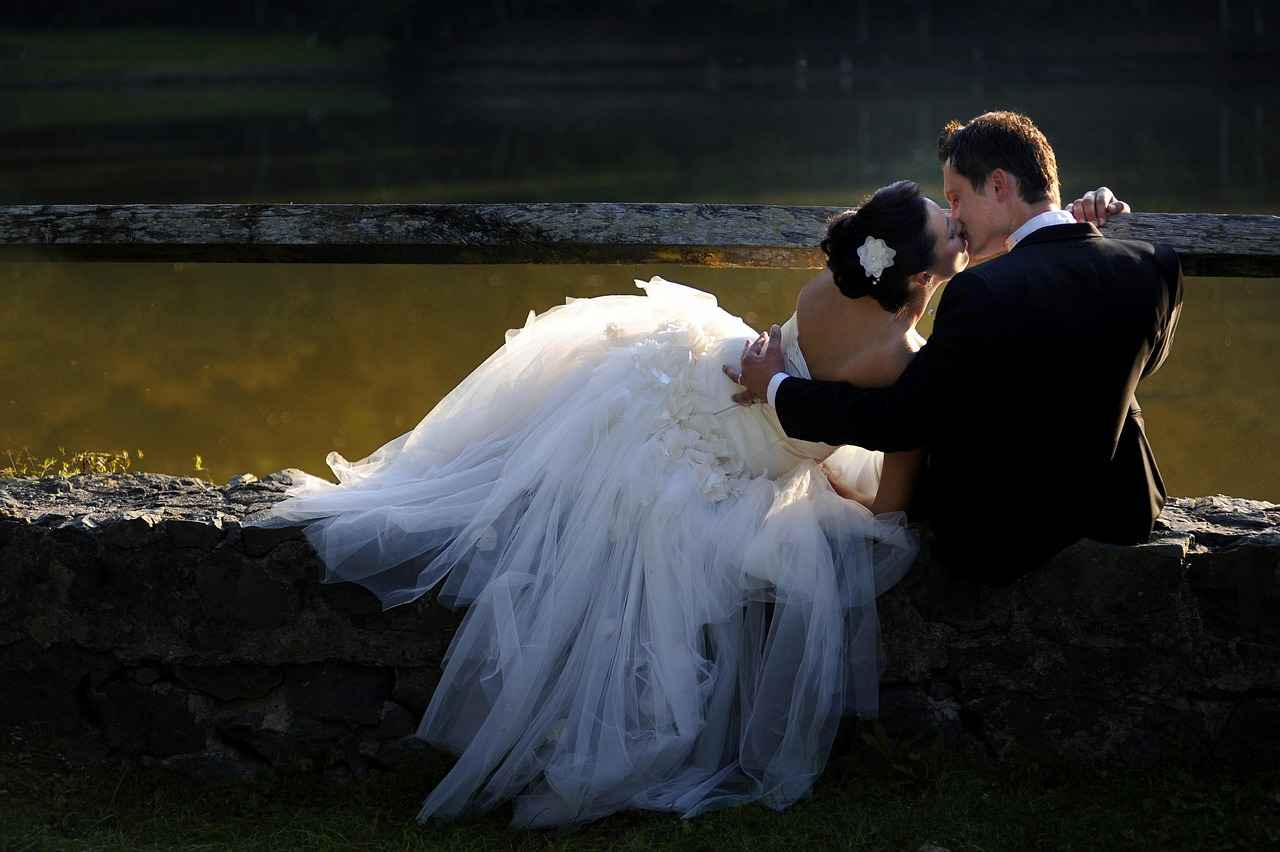
How Do You Prepare for a Wedding Ceremony?
Preparation is key to a successful wedding ceremony. The planning process can be overwhelming, but with a structured approach, it becomes manageable and enjoyable. This section outlines essential steps to take in personalizing the wedding ceremony to meet the couple’s desires and ensure a memorable experience.
Preparation allows the officiant to understand the couple’s vision and tailor the ceremony accordingly. It sets the tone for the event and helps in creating a meaningful experience that reflects the couple’s unique love story.
- Initial Consultation: Schedule a meeting with the couple to discuss their expectations, preferences, and any specific elements they want to include in the ceremony.
- Understanding Cultural Traditions: If the couple comes from different cultural backgrounds, be aware of their traditions and how they wish to incorporate them into the ceremony.
- Choosing the Ceremony Location: Discuss potential venues and visit them if possible. The location can influence the ceremony’s atmosphere and logistics.
- Defining the Ceremony Structure: Outline the key components of the ceremony, including the processional, vows, ring exchange, and pronouncement, ensuring that the couple’s input is included.
A well-crafted script is essential for the flow of the ceremony. Here are some tips for creating a script that resonates with the couple:
1. Start with a warm welcome to guests.2. Include a personal story or anecdote about the couple.3. Incorporate readings or quotes that are meaningful to them.4. Ensure the vows reflect their commitment and values.5. End with a heartfelt pronouncement of marriage.
Once the script is finalized, rehearsing is crucial. Schedule a rehearsal with the couple and any key participants to go over the flow of the ceremony. This practice helps everyone feel comfortable and confident on the big day.
- Confirm Details: Reconfirm the date, time, and location with the couple, and ensure all necessary documents are in order.
- Arrive Early: On the day of the ceremony, arrive at the venue early to set up and greet guests.
- Stay Calm and Collected: As the officiant, your demeanor sets the tone for the ceremony. Maintain a calm presence to help ease any nerves.
In summary, thorough preparation for a wedding ceremony involves understanding the couple’s vision, crafting a personalized script, and rehearsing to ensure everything runs smoothly. By taking these steps, officiants can create a meaningful and memorable ceremony that reflects the couple’s love and commitment.
Meeting with the Couple
When it comes to officiating a wedding, the initial meetings with the couple are absolutely essential. These meetings set the foundation for a successful ceremony and provide a platform for effective communication. Understanding the couple’s vision is key to creating a personalized and memorable experience. Here are some important aspects to consider during these initial discussions.
- Establishing Rapport: Building a connection with the couple is crucial. Start the meeting with a warm introduction and share a bit about yourself. This helps in creating a comfortable atmosphere where the couple feels free to express their thoughts and ideas.
- Understanding Their Vision: Ask open-ended questions to explore the couple’s vision for their wedding ceremony. Questions like, “What themes or styles are you considering?” or “Are there any specific traditions you want to include?” can provide valuable insights into their preferences.
- Listening Actively: Pay close attention to the couple’s responses. Active listening not only shows that you value their input but also allows you to gather important details that will inform your officiating style and ceremony structure.
- Discussing Logistics: It is vital to cover the logistical aspects of the ceremony. Discuss the venue, the number of guests, and any specific requirements or restrictions that may be in place. This information will help you plan accordingly and ensure a smooth ceremony.
- Sharing Ideas and Suggestions: Once you have a clear understanding of the couple’s vision, share your ideas and suggestions. This collaboration can lead to a more personalized ceremony that reflects the couple’s love story and values.
In addition to these points, it is important to address any concerns the couple may have. Encourage them to voice their thoughts about the ceremony, and reassure them that their wishes are your priority. This open line of communication can alleviate any anxieties and foster a sense of trust.
Finally, documenting the details discussed during the meeting is a good practice. Take notes on the couple’s preferences, ideas, and any special requests. This will not only help you remember important details but also serve as a reference when crafting the ceremony script.
In summary, the initial meetings with the couple are a vital step in the wedding officiating process. By establishing rapport, understanding their vision, actively listening, discussing logistics, and sharing ideas, you can create a ceremony that truly reflects the couple’s love and commitment to each other.
Crafting the Ceremony Script
Crafting a ceremony script is a crucial step in creating a memorable wedding experience. A well-structured script not only ensures the flow of the ceremony but also reflects the unique story of the couple. Here, we provide essential tips on how to write and customize a ceremony script that resonates with the couple’s narrative.
A customized ceremony script is vital because it personalizes the experience for the couple and their guests. It allows the officiant to weave in elements that are meaningful to the couple, such as shared memories, cultural traditions, and personal vows. This approach not only enhances the emotional impact of the ceremony but also creates lasting memories for everyone involved.
- 1. Meet with the Couple: Initial meetings are essential for understanding the couple’s vision. Discuss their love story, values, and any specific requests they may have for their ceremony.
- 2. Choose a Theme: Determine if there is a theme or style that the couple prefers. This could range from traditional to modern, or even whimsical.
- 3. Outline the Ceremony Structure: A typical wedding ceremony includes an introduction, readings, vows, exchange of rings, and closing remarks. Ensure that each section flows smoothly into the next.
- 4. Incorporate Personal Elements: Include anecdotes, quotes, or poems that reflect the couple’s journey together. This personal touch will resonate deeply with the couple and their guests.
- 5. Write the Script: Use clear and concise language. Avoid jargon and keep the tone warm and inviting. Remember to include pauses for emotional moments.
To further enhance the script, consider the following:
- Use Humor Wisely: A light-hearted joke can break the ice and make the ceremony feel more relaxed. However, ensure that it aligns with the couple’s personality.
- Practice Makes Perfect: Encourage the couple to rehearse their vows and any readings. This practice will help them feel more comfortable on the big day.
- Be Flexible: Be prepared to adjust the script as needed. Sometimes, emotions can lead to spontaneous moments that are worth embracing.
Once the script is drafted, review it with the couple to ensure it meets their expectations. Make any necessary adjustments based on their feedback. It’s also beneficial to print the final version on high-quality paper, which adds a touch of elegance and serves as a keepsake for the couple.
In conclusion, a well-crafted ceremony script is a powerful tool in creating a beautiful wedding experience. By personalizing the script and incorporating the couple’s story, you can ensure that the ceremony is not only memorable but also a true reflection of their love.

What Are the Best Practices for Conducting a Wedding Ceremony?
Conducting a wedding ceremony is a significant responsibility that requires both skill and poise. As an officiant, your role is to create a memorable experience for the couple and their guests. This section outlines some of the best practices to ensure a smooth ceremony.
Preparation is key to a successful event. Here are some essential practices:
- Understand the Couple’s Vision: Before the ceremony, meet with the couple to discuss their expectations. Ask about their preferred tone—whether it’s formal, casual, or themed. This understanding will help tailor the ceremony to reflect their personalities.
- Practice the Ceremony Script: Familiarize yourself with the script. A well-rehearsed officiant can deliver the ceremony with confidence, making the experience enjoyable for everyone.
- Check Equipment: If using microphones or other sound equipment, conduct a sound check beforehand. Ensure everything is functioning properly to avoid technical issues during the ceremony.
Engaging the audience is crucial for a memorable ceremony. Here are some techniques:
- Make Eye Contact: Eye contact helps create a connection with the guests. It makes the ceremony feel more intimate and inclusive.
- Use Humor Appropriately: A light-hearted joke can ease tension and create a relaxed atmosphere. However, ensure that humor aligns with the couple’s style and the overall tone of the ceremony.
- Incorporate Personal Stories: Share anecdotes about the couple that highlight their love story. This personal touch can resonate with guests and make the ceremony more relatable.
No ceremony is without its surprises. Here are some strategies to gracefully manage unforeseen circumstances:
- Stay Calm: Your demeanor sets the tone. Remaining composed can reassure the couple and guests, helping to diffuse any tension.
- Have a Backup Plan: Prepare for potential issues, such as bad weather or equipment failure. Having a contingency plan can save the day.
- Be Flexible: Sometimes, things don’t go as planned. Adapt to changes gracefully, whether it’s a delay or an unexpected guest. Your flexibility will contribute to a positive atmosphere.
Finishing touches can make a significant difference in the ceremony’s impact:
- Personalized Vows: Encourage couples to write their own vows, adding a unique and heartfelt element to the ceremony.
- Include Rituals: Consider incorporating cultural or personal rituals that hold significance for the couple, such as unity candles or sand ceremonies.
- Thank the Guests: Acknowledge the presence of family and friends who have gathered to support the couple. A simple thank you can enhance the sense of community.
By following these best practices, officiants can create a ceremony that is not only smooth and organized but also deeply meaningful for the couple and their guests. Remember, the goal is to celebrate love, and your role is pivotal in making that celebration unforgettable.
Engaging the Audience
Creating a memorable wedding ceremony goes beyond the exchange of vows; it is about connecting with the audience. An engaging ceremony can transform a simple event into a heartfelt experience that resonates with everyone present. Here are some strategies for officiants to enhance their connection with guests and elevate the overall experience.
Engaging the audience during a wedding ceremony is crucial for several reasons:
- Emotional Connection: A captivating ceremony fosters emotional ties among guests, making them feel part of the couple’s journey.
- Memorable Moments: Engaged guests are more likely to remember the ceremony fondly, sharing their experiences long after the event.
- Positive Atmosphere: An interactive ceremony creates a joyful ambiance, encouraging laughter and tears of joy.
Here are effective strategies that officiants can employ to captivate their audience:
One of the best ways to engage attendees is by personalizing the ceremony. Incorporate anecdotes or stories about the couple that highlight their relationship. This approach not only entertains guests but also helps them feel connected to the couple’s love story.
Consider including interactive elements in the ceremony. For example, you might invite guests to share a few words or blessings for the couple. This can be done through a “wishing stone” ceremony, where guests pass around stones and share their wishes for the couple as they hold the stone.
Humor can be a powerful tool in keeping the audience engaged. Light-hearted jokes or funny stories about the couple can break the ice and create a relaxed atmosphere. However, it’s essential to know the couple’s preferences and the audience’s sensitivities to ensure that humor is appropriate.
As an officiant, establishing eye contact with guests creates a sense of intimacy. It makes attendees feel seen and included in the ceremony, enhancing their emotional investment in the proceedings. Move around the space if possible, allowing different sections of the audience to feel your presence.
Incorporating visuals like slideshows or video montages of the couple can make the ceremony more engaging. Additionally, using music that resonates with the couple’s story can evoke emotions and enhance the overall experience. Make sure to choose songs that have significance to the couple.
Guests appreciate authenticity. Share your genuine feelings about the couple and the significance of the day. Being relatable allows guests to connect with you as the officiant, making the ceremony feel more personal and heartfelt.
Engaging the audience during a wedding ceremony is an art that requires thoughtfulness and creativity. By personalizing the ceremony, inviting participation, using humor, maintaining eye contact, and incorporating visual and auditory elements, officiants can create a magical experience that resonates with everyone present. Ultimately, a well-engaged audience contributes to a memorable celebration of love.
Handling Unexpected Situations
Weddings are joyous occasions, but they can also be unpredictable. gracefully is crucial for an officiant to ensure that the ceremony remains memorable for all the right reasons. Here, we provide practical advice on managing unforeseen circumstances during a wedding ceremony.
Unexpected issues can range from minor inconveniences to significant disruptions. Some common situations include:
- Weather disruptions: Rain or extreme temperatures can affect outdoor ceremonies.
- Late arrivals: Whether it’s the couple, the guests, or even the officiant, tardiness can throw off the schedule.
- Technical difficulties: Problems with sound equipment or music can hinder the ceremony’s flow.
- Emotional moments: Unexpected tears or emotional outbursts can occur, requiring the officiant to respond delicately.
Preparation is key to managing unexpected situations. Here are some strategies:
- Have a backup plan: Always prepare for weather changes by having an alternative venue or setup. If the ceremony is outdoors, consider renting a tent or having an indoor option available.
- Stay in communication: Maintain open lines of communication with the couple and wedding planner to stay informed about any last-minute changes.
- Practice flexibility: Be ready to adapt your script or ceremony flow to accommodate changes, such as a late arrival or a change in the order of events.
When faced with an unexpected situation, your response can set the tone for the ceremony. Here are some tips:
- Stay calm: Your demeanor will influence the couple and guests. Maintain a positive attitude to help ease any tension.
- Address the issue directly: If there’s a significant disruption, acknowledge it briefly and move on. For example, if the sound system fails, you might say, “Let’s take a moment to enjoy the atmosphere while we sort this out.”
- Engage the audience: Use humor or light-hearted comments to keep the mood upbeat. This can help distract from any ongoing issues.
Weddings can be emotional experiences, and unexpected situations may heighten those feelings. Here’s how you can support the couple:
- Be empathetic: Acknowledge their feelings and reassure them that everything will be okay.
- Provide comfort: If one of the partners becomes overwhelmed, offer a moment of pause or a few encouraging words to help them regain composure.
In conclusion, handling unexpected situations during a wedding ceremony requires a mix of preparation, adaptability, and emotional intelligence. By anticipating potential issues, maintaining a calm demeanor, and supporting the couple, you can navigate any disruption with grace and professionalism. Remember, the goal is to create a beautiful experience that the couple and their guests will cherish for a lifetime.
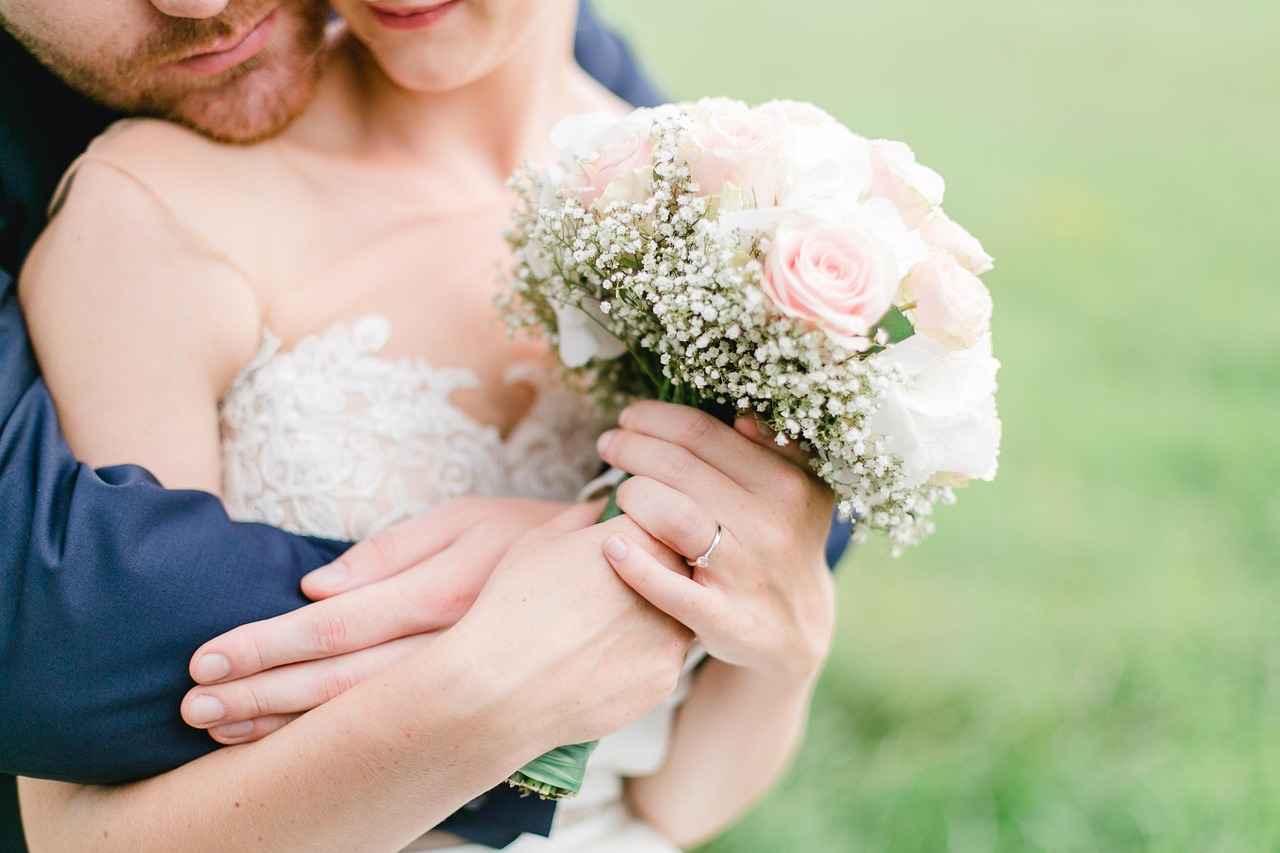
How Do You Market Yourself as a Wedding Officiant?
In today’s competitive wedding industry, effective marketing is crucial for attracting clients and establishing a reputable presence as a wedding officiant. This section will explore various strategies to build your brand and connect with potential couples seeking your services.
Building a strong brand is essential for differentiating yourself in a crowded market. Your brand represents your unique style, values, and the experience you offer. A well-defined brand can help you:
- Attract the Right Clients: A clear brand message will resonate with couples who share your vision.
- Establish Trust: A professional image fosters trust and confidence in your abilities.
- Encourage Referrals: Satisfied clients are more likely to recommend you to others when they recognize your distinct brand.
In the digital age, having a robust online presence is non-negotiable. Here are some steps to enhance your visibility:
- Build a Professional Website: Your website should showcase your services, testimonials, and contact information. Ensure it is user-friendly and visually appealing.
- Utilize Social Media: Platforms like Instagram and Facebook are ideal for sharing photos and stories from ceremonies you’ve officiated. Engage with your audience by posting regularly and responding to comments.
- Optimize for SEO: Use relevant keywords in your website content to improve search engine visibility. Consider phrases like “wedding officiant near me” or “personalized wedding ceremonies.”
Networking with other wedding professionals can significantly boost your visibility. Consider these approaches:
- Attend Wedding Fairs: Participate in local bridal shows to meet potential clients and other vendors.
- Collaborate with Vendors: Build relationships with photographers, wedding planners, and venues. Referrals from these professionals can lead to new clients.
- Join Local Wedding Groups: Engage with community groups or online forums where wedding professionals share resources and referrals.
Positive reviews can significantly impact your marketing efforts. Here’s how to effectively utilize them:
- Request Feedback: After a ceremony, ask couples to provide feedback. Make it easy for them to leave reviews on your website or social media.
- Showcase Testimonials: Highlight positive reviews prominently on your website and marketing materials to build credibility.
- Respond to Reviews: Engage with clients by responding to their reviews, whether positive or negative, to show you value their input.
In addition to the strategies mentioned, consider these additional marketing techniques:
- Content Marketing: Write blogs or articles about wedding trends, tips for couples, or personal officiant experiences. This positions you as an expert in your field.
- Email Marketing: Build an email list to keep potential clients informed about your services, promotions, and wedding tips.
- Participate in Community Events: Engage in local events or charity functions to increase your visibility and connect with potential clients.
By implementing these strategies, you can effectively market yourself as a wedding officiant, attract more clients, and build a successful business. Remember, consistency and authenticity in your marketing efforts will resonate with couples looking for a memorable officiant to help them celebrate their special day.
Creating an Online Presence
In today’s digital landscape, establishing a strong online presence is no longer optional; it is essential for success, especially for those looking to market their services as wedding officiants. This section delves into the vital components of building a website and utilizing social media effectively.
Having an online presence allows you to reach a wider audience and showcase your unique offerings. Potential clients often turn to the internet to search for officiants, making it crucial for you to be visible where they are looking.
Your website serves as your digital storefront. Here are key elements to include:
- User-Friendly Design: Ensure your website is easy to navigate, with a clean layout and intuitive menu.
- Compelling Content: Share your story, qualifications, and services. Use engaging visuals and testimonials to build credibility.
- SEO Optimization: Use relevant keywords throughout your site to improve search engine rankings, such as “wedding officiant” and “ceremony services.”
- Contact Information: Make it easy for potential clients to reach you with a clear contact form and your social media links.
Social media platforms are powerful tools for connecting with couples. Here’s how to make the most of them:
- Choose the Right Platforms: Focus on platforms like Instagram and Facebook where visual content thrives. Share pictures from ceremonies you’ve officiated to attract potential clients.
- Engage with Your Audience: Respond to comments and messages promptly. Share behind-the-scenes content, tips for couples, and relevant articles to build a community.
- Collaborate with Other Vendors: Partner with photographers, florists, and wedding planners to cross-promote services. Tag each other in posts to expand your reach.
- Use Hashtags Wisely: Incorporate popular wedding-related hashtags to increase your visibility. Research trending tags in your area to attract local couples.
To ensure your online presence is effective, consider the following strategies:
- Regular Updates: Keep your website and social media profiles updated with fresh content, including blog posts or recent weddings.
- Analytics Tracking: Use tools like Google Analytics to monitor your website traffic and understand what attracts visitors.
- Online Reviews: Encourage satisfied couples to leave reviews on platforms like Google and Yelp. Positive testimonials can significantly influence potential clients.
In summary, building a strong online presence is a multifaceted process that involves creating an engaging website and effectively using social media to connect with your audience. By implementing these strategies, you can enhance your visibility and attract more clients to your officiant services.
Networking with Wedding Vendors
is an essential strategy for aspiring wedding officiants looking to enhance their visibility and grow their business. By building strong relationships with other professionals in the wedding industry, such as photographers, planners, and venues, you can create a network that not only supports your growth but also enriches the overall wedding experience for couples.
Why is Networking Important? Establishing a professional network can lead to valuable referrals. When other vendors recognize your skills and professionalism, they are more likely to recommend you to their clients. This can significantly increase your exposure and credibility in a competitive market.
How to Build Relationships with Photographers
- Attend Industry Events: Participate in bridal shows, workshops, and networking events where photographers are present. This provides a platform for introductions and discussions.
- Collaborate on Styled Shoots: Offer to officiate at styled shoots organized by photographers. This not only showcases your skills but also creates stunning visuals that can be shared across platforms.
- Share Each Other’s Work: Promote photographers’ work on your social media and ask them to do the same. This mutual support can foster a lasting partnership.
Connecting with Wedding Planners
- Build Trust: Establish a reputation for being reliable and professional. Wedding planners often seek officiants who can seamlessly integrate into their vision for the event.
- Offer Unique Services: Differentiate yourself by offering services that align with planners’ needs, such as customized ceremonies or themed officiating.
- Participate in Planner Meetings: Attend meetings or workshops organized by wedding planners to understand their processes and how you can fit into their team.
Engaging with Venues
- Establish a Presence: Visit local wedding venues and introduce yourself to the staff. Leave behind your business cards and promotional materials.
- Offer Venue Tours: Collaborate with venues to offer tours for couples, showcasing how you can personalize their ceremony within the space.
- Participate in Venue Open Houses: Many venues host open houses for potential clients. Volunteer to officiate during these events to gain exposure.
Utilizing Social Media for Networking
Social media platforms such as Instagram and Facebook are invaluable for networking. Share high-quality images from ceremonies, tag other vendors, and engage with their content. This not only builds relationships but also increases your visibility among potential clients.
Follow Up and Maintain Relationships
After meeting vendors, send a follow-up email expressing your pleasure in connecting. Regularly check in with your contacts, share updates, and offer support. Building a network is not just about initial introductions; it’s about nurturing those relationships over time.
In conclusion, effective networking with wedding vendors can significantly enhance your career as a wedding officiant. By establishing solid relationships with photographers, planners, and venues, you can increase your visibility, gain referrals, and ultimately create memorable experiences for couples on their special day.
Frequently Asked Questions
- What qualifications do I need to become a wedding officiant?
To become a wedding officiant, you typically need to be at least 18 years old and possess a genuine passion for uniting couples. While formal education isn’t mandatory, having strong communication skills and a warm personality can greatly enhance your effectiveness.
- How can I get ordained to officiate weddings?
You can get ordained through various online services or traditional religious institutions. Online ordination is often the quickest route, allowing you to complete the process in just a few minutes, while traditional methods may involve more extensive training.
- Are online ordinations legally recognized?
Yes, many states recognize online ordinations, but it’s essential to check local laws, as regulations can vary significantly. Always verify that your credentials will be accepted in the state where the wedding will take place.
- What legalities should I be aware of as an officiant?
As an officiant, you must understand marriage laws, including obtaining a marriage license and any specific documentation required in your state. Each state has unique regulations that you need to comply with to ensure the marriage is legally binding.
- How do I prepare for a wedding ceremony?
Preparation involves meeting with the couple to understand their vision, crafting a personalized ceremony script, and practicing your delivery. The more you prepare, the more confident and effective you’ll be on the big day!
- What are the best practices for conducting a wedding ceremony?
Engaging the audience is crucial for a memorable ceremony. Use storytelling techniques, maintain eye contact, and be ready to handle unexpected situations with grace to keep everything flowing smoothly.
- How can I market myself as a wedding officiant?
Creating an online presence is vital. Build a website showcasing your services, gather testimonials, and utilize social media to connect with potential clients. Networking with other wedding vendors can also help boost your visibility.

